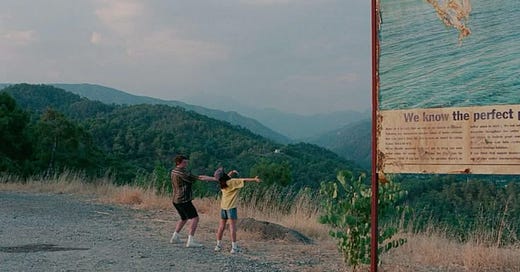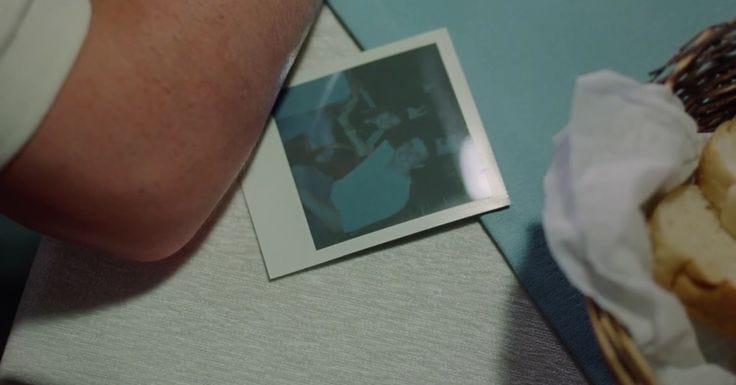“And there's this feeling, once you leave where you're from, like, where you grew up, that, um, you don't totally belong there again.”
A disclaimer to the few who stumble upon this piece: you and I do not come from the same father, obviously.
There was a distinct fear in watching this film, nestled in between each rib, shielding my heart. It was so indescribable and pressurizing that I inherently forgot that that feeling was called nostalgia. It was nostalgia for a time that never existed— but it felt so real.
In its one hour and forty-two minutes of runtime, I had somehow become Sophie and my dad, Calum. Or, rather, I looked at it from the foggy lenses of a camera long forgotten— a feeling no longer remembered.
To be honest, I don’t remember the last full conversation I had with my dad, so much so that it made me fear what I’d experience when viewing this film; an experience that clutches my heart in its hand and squeezes every time I remember a memory that once was a moment instead of a foggy recollection.
I sing praises for the way Wells framed each scene, colours a beautiful amalgamation of everything that makes a painting art. It was not framed to be a movie, I don’t think. It was framed to be a memory.
Even the film’s poster, of Calum and Sophie looking on to the ocean’s horizon, has a small, remarkable detail of a camera’s glitch right at the very bottom. The film’s strengths, I find, are in every small detail— of which perfectly encapsulate the slow-paced tempo it seems to run on. I am not complaining, by any means.
Instead, it makes me yearn for the moment I could remember the moments where my dad carried me home from the car after I fell asleep during the drive back from a road trip; a secret no one shall know but us is that I pretended to be asleep, shutting my eyes so that I may be surrounded by my dad’s secure grip.
I am sorry to say that I no longer remember being held that way, not unlike the faded photograph taken decades past— details existing only in memory.
I seemed to understand, after fully viewing Aftersun, that I don’t know much about my dad at all. And it saddens me to say that I no longer recall his face, unwrinkled from years of hard labour and sleepless nights. I know that he loves to sleep and that he loves watching a long-running TV show.
But I can’t seem to remember what his favourite colour was, nor can I remember his go-to song.
What once was a familiar face became a stranger I shared a home with.
I miss my dad, which is precisely why I love this movie.
A distinct pressure in my chest, the need to understand, has led me to believe in the genius that is this movie. I am Sophie because of my desire to understand my dad, and he is Calum because of his desire to understand me. And yet, despite this, we remain exchanging pleasantries every morning as if we were nothing but colleagues.
Perhaps, the reason we can’t seem to understand each other’s language is that we gave up a long time ago.
A long time ago, he decorated my room pink, and he bought a specific juice brand in all flavours because I said I liked it once. A long time ago is now, when he and I brushed past each other in the kitchen without as much as a word exchanged— and I can no longer remember the time I said I love you, dad.
I remember every detail, something that I shouldn’t have to do because he is right here, and Aftersun is just a movie— a movie that is a memory belonging to me and a stranger’s, a stranger who I grew up with.






This was beautiful - thank you.
I'm grieving my Dad at the moment so this connected.
I've just posted a short piece that you might resonate with - https://open.substack.com/pub/katiebriefel/p/to-grow-in-the-dark?r=1g632&utm_campaign=post&utm_medium=web
I miss my dad too